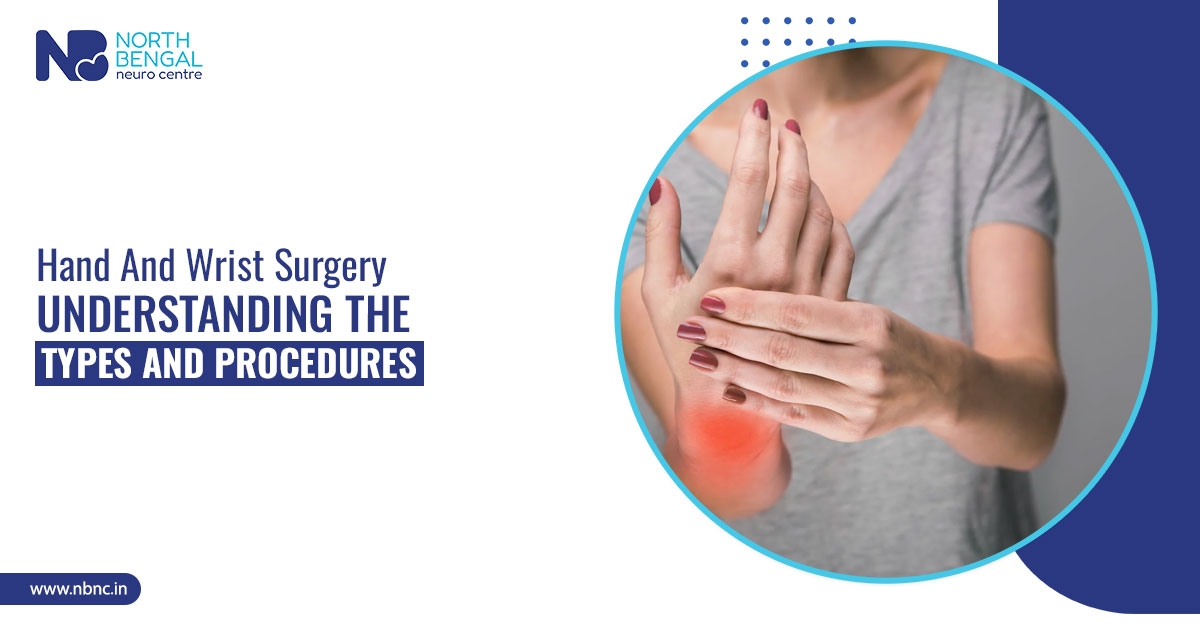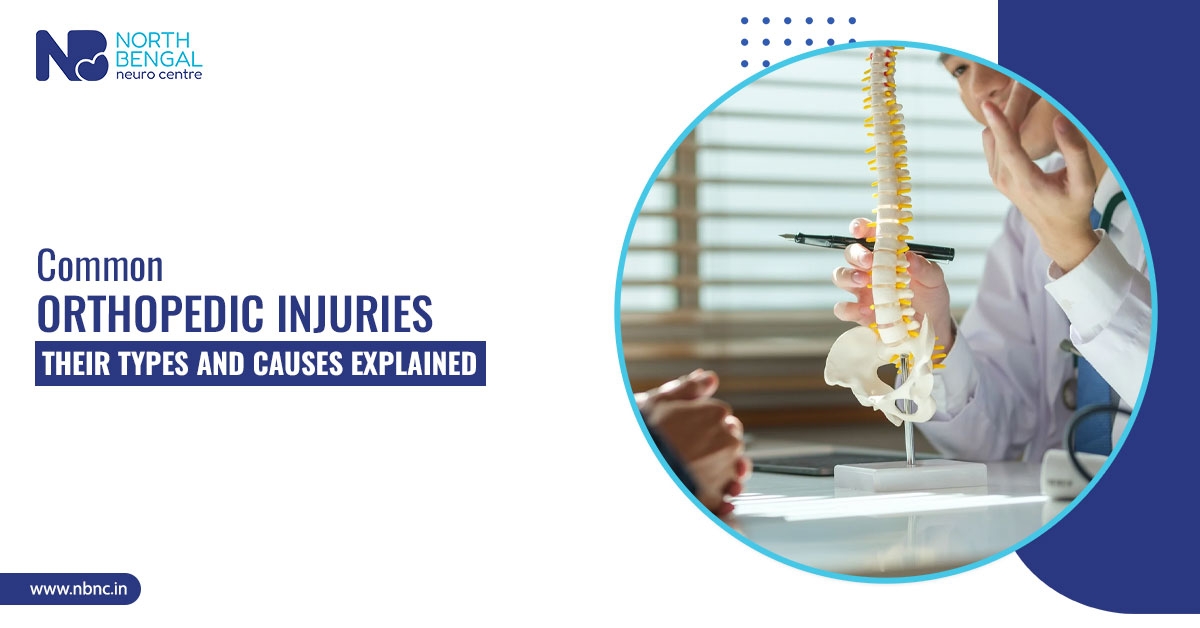The brain is one of the most amazing yet complex parts of the human body. Your brain is home to more than 100 billion neurons that handle all your actions starting from personality to movement. However, neurological conditions can severely impact your brain functioning while leading to poor coordination, seizures, and confusion. You must know that there is extremely little information about the disorders which makes it difficult for people to detect early signs and contact the neurologist in Siliguri at the right time.
There are also various misconceptions regarding brain diseases present among people which can also lead everyone in the wrong direction. You must have a fair idea about the true facts of brain diseases so that you can detect the symptoms and avail yourself of the best treatments for a successful recovery. Getting accurate information is highly essential to properly understand the underlying condition and know all the areas of the brain.
Debunking The Common Myths Associated With Brain Diseases
Myth 1: Video games can decrease brain health.
Most people believe that video games can damage their brain health. However, this is a myth because there is no prominent connection between decreased cognitive function and playing video games. The negative and positive effects of video games depend upon the number of hours you’re playing.
Herein, you must know that if you’re playing video games for a limited amount of time then it can be quite beneficial in improving hand-eye coordination and strategy development. Herein, some doctors also recommend video games to older adults as it helps to maintain brain agility and health. Video games can only hamper your brain and mental health if you have no social connection from video games.
Myth 2: Age reduces brain plasticity.
Another assumption that people have regarding brain diseases is that age can play a major role in reducing brain plasticity. This is another major myth since with proper exercise you can maintain brain agility, strength, and plasticity effectively. Our brain is like a muscle and if we are training it with new activities then age doesn’t impact its plasticity.
Herein, doctors can also recommend various activities to promote brain plasticity which include Sudoku, tennis, and other sports that can improve strategic skills and coordination. You can also use various brain game apps to develop new pathways for enhancing the brain’s ability.
Myth 3: Your memory declines as you get older.
It is true older adults visit a neuro hospital in Siliguri more with memory-related problems. However, it is a myth to think that people with advanced age can only develop memory issues. In fact, memory loss is a major symptom of dementia and Alzheimer’s disease that may impact people of all ages.
This is why it is extremely essential to contact an experienced neurologist immediately if you experience a long-term decline in memory and face difficulties recalling important information. Additionally, there can be various tasks such as visualization, playing games, and meditation to improve short-term, spatial, and visual memory along with cognition.
Myth 4: Neurological problems are always hereditary.
Parkinson’s disease, epilepsy, and Alzheimer’s disease are some of the genetic conditions. However, not all times of neurological issues affecting your brain are heretic. Various nerve or brain injuries, congenital abnormalities, lifestyle factors, and infections can be some of the other factors that can lead to neurological issues.
It is true that family history plays a major role in brain disorders but only in some cases, this factor is applicable. If you experience any symptoms of neurological issues then contact a neurologist immediately to determine the main cause behind it. This will help in detecting the location of damage and reduce the chances of impacted cognition, hearing, and movement.
Myth 5: Your brain cells can be damaged by alcohol.
Another myth related to brain diseases is that drinking alcohol can damage the brain cells. This is untrue because moderate alcohol consumption cannot lead to brain damage. However, if you’re constantly drinking heavy amounts of alcohol then the ends of neurons known as dendrites can damage hugely. This damage can interfere with the brain's ability to convey messages and as a result, it will deteriorate major bodily functions.
A major neurological disorder that you can develop due to alcohol is Wernicke-Korsakoff syndrome which leads to impaired memory, vision changes, and loss of muscle coordination. This is why it is always recommended by every neurologist to check their alcohol consumption levels and reduce the likelihood of brain problems.
Myth 6: Concussions are not a serious brain disease.
People often have the misconception that concussions are not a concerning brain disorder. However, you must know that concussions can be mild brain injury but it can lead to severe complications if not treated at the right time. Seeing stars, ringing in the ears, headache, blurry vision, and vomiting are some of the symptoms of concussion that you should never ignore.
In most cases, concussions are not life-threatening but they are definitely serious with some concerning lifelong symptoms. Another myth associated with this issue is that concussions are only experienced by athletes. Herein, the truth is that you can experience concussions after a sudden fall, vehicle accident, or other types of physical trauma.
Myth 7: MRI and CT scans can always spot brain injury.
Most patients think that they can completely rely upon the reports of CT and MRI scans after suffering from a brain injury. These screening methods are indeed highly effective in detecting skull fractures, acute trauma, and brain bleeds but there can also be certain other conditions that cannot be accurately identified through these scans.
This is why you shouldn’t be worry-free if the reports of CT and MRI scans have come clear. In most cases, these scans don’t identify concussions which can often lead to delayed diagnosis and treatment. It is important to look for vital signs for any type of brain injury even after getting clear reports.
Myth 8: Neurological disorders cannot be treated.
Another popular belief which is actually a myth is that neurological disorders cannot be treated. It is true that certain neurological disorders affecting brain functioning can be difficult and complex to manage but various advanced treatment options can handle the distressing symptoms.
Self-care, medications, and rehabilitation such as occupational, speech, and physical therapy can play a major role in improving your life quality. Even if there is no prominent cure for the neuro issues, the doctor can still recommend some medications that can slow down the progression of the disorder and manage the associated complications.
Myth 9: Under pressure, your brain can work better.
Another persisting belief about the brain is that your brain can work better under pressure. This is definitely a myth because your brain is just an organ and not a computer henceforth, it has a maximum capacity. If you work excessively then it can surely make you work more but it will never increase your brain productivity.
On the contrary, constantly putting pressure on your brain can cause significant stress which will ultimately impair normal brain functioning. This is why you should never focus on stress and increased performance to improve brain health and decrease the risks of brain disorders.
Myth 10: You can improve reasoning and memory through brain games.
You may have heard many times that playing brain games can improve your memory and enhance your reasoning skills. However, it is proven that even after playing brain games for 10 minutes every day participants of the study didn’t show any significant improvements in terms of memory.
There are basically no games that can train your brain to function better. Despite the lack of evidence, you can still consider playing certain brain games such as Sudoku to make your brain sharper and improve your logical reasoning to some extent.
If you know someone who suffers from a brain disorder then advise them to visit a neurologist in Siliguri before listening to the myths about the disorder from other people. It is always a better option to rely upon the advice of medical professionals since they specialize in diagnosing and treating various neurological disorders successfully.
Comments (0)





